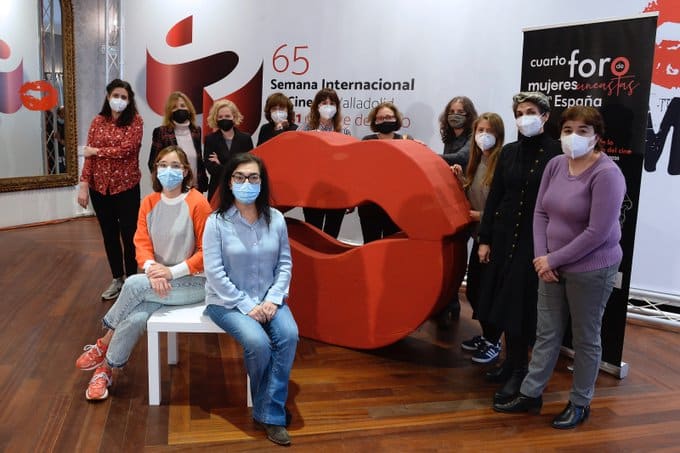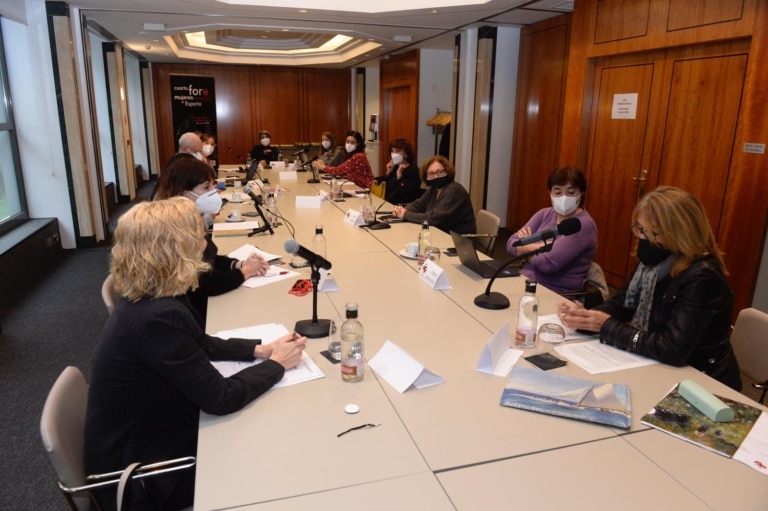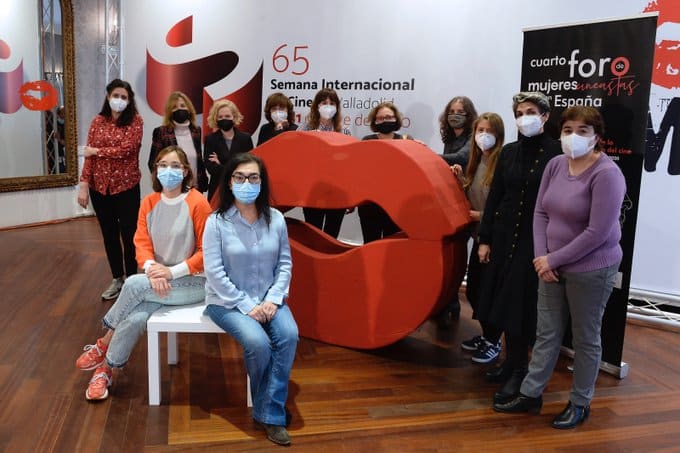
25/10/2020.- Today, the 65th Seminci hosted the round table on the 4th Women Filmmakers’ Forum, which this year is focused on the world of education, and warned of the consequences that the prolongation of the crisis as a result of the Covid-19 pandemic will have for both teachers and students, who will suffer greater precariousness and a regression in areas such as access to education, work-life balance and visibility.
This crisis, as highlighted by Concepción Cascajosa, Vice Dean of Journalism and Audiovisual Communication of the Carlos III University of Madrid, has given visibility to the universe of caregiving, which traditionally has been associated with women, and there is a danger that caregivers’ careers, both teachers’ and students’, may be harmed by this fact, so they have appealed to the joint responsibility of both public institutions and colleagues in the sector.
“This is how you make a more humane society”, Cascajosa highlighted. Belén Bernuy, from ECAM, assured that in her case, in her classes, it is more difficult for female students than for male students to have leadership, so she has pointed to the need for girls to have references also in the teaching world, and for the boys to accept that they can have female bosses.
The forum’s debate revolved around the report prepared by Concha Gómez, who during the round table presented some of the main data on the situation of teaching filmmaking in Spain and the role that women play in it: 97.7% of preschool and elementary school teachers are women, while in the case of university education the percentage drops to 41.8%, of which 45.3% hold non-tenured positions and only 22.5% are full professors.
Taking that map as a starting point, Áurea Ortiz, Belén Bernuy, Belén Funes, Concepción Cascajosa, Helena Fernández, Marta Nieto, Marta San Vicente, María Luisa Ortega, María del Puy Alvarado, Nuria Aidelman, Eulália Iglesias, Mercedes Miguel, Patricia Ferreira, Laura Bermejo, Jara Yáñez and Concha Gómez have debated yesterday and today about the situation and have reached, among others, the conclusion that educational and cultural institutions have to allocate funds and resources to carry out studies on women’s role in the education field, and specifically in teaching filmmaking.
Making Women’s Contribution Visible
The participants also consider it necessary to review the canon of film and audiovisual history in educational curricula in order to make women’s contribution visible, not only as directors but also in other technical and creative roles, and to strive to help women achieve more effective leading positions in training centres, because of the repercussions this can have on hiring policies, the design of curricula and the implementation of teaching practices.

The participants, during one of their meetings.
In their opinion, it is essential to reflect on the way in which teachers can stimulate women’s participation in their own training, and to combine the two options to address the gender perspective in filmmaking: doing it in a transversal and interdisciplinary way, and making changes in the study plans to include specific subjects.
The participants favour taking advantage of the high availability and diversity offered by digital culture to review traditional canons, both in cinematography and in bibliography, and to access works directed and written by women, although they warn that on these digital platforms there are instruments of power that regulate accessibility algorithms and reduce the diversity of the offer.
The conclusions reached at the 4th Forum urge educational centres of all levels to facilitate the incorporation of women in technical education and to give visibility to female examples in these specialties. They propose building bridges and spaces for reciprocal exchange between elementary and secondary school pupils and university and vocational training students regarding the teaching of filmmaking and audiovisuals, and they recommend training teachers of pre-university education in film and audiovisual culture with a gender perspective. Regarding this last aspect, the participants have agreed to prepare a Good Practices document to reach this goal.



























![Logo Foro Cultural de Austria Madrid[1]](https://www.seminci.com/wp-content/uploads/2024/09/Logo-Foro-Cultural-de-Austria-Madrid1-300x76.jpg)








